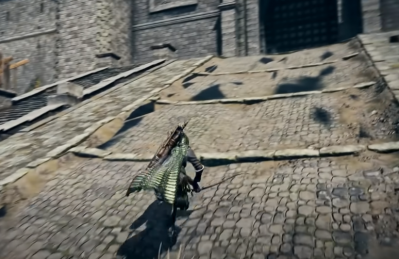($) USD
0
FromSoftware’s Elden Ring redefined what open-world progression could look like in a soulsborne game. Unlike traditional RPGs that rely heavily on linear storytelling and area access based on level gates, Elden Ring adopts a more fluid and player-driven structure. A core part of this progression system revolves around Elden Ring Runes, the game’s primary currency used for leveling up, purchasing items, and upgrading gear. These runes are earned through exploration, combat, and boss battles, rewarding players for their persistence and skill.
The progression in Elden Ring is designed to give players a sense of freedom while still maintaining the hallmark challenge FromSoftware is known for. There is no fixed path through the game, and players can venture into higher-level areas early if they’re confident and skilled enough. This flexibility encourages experimentation and exploration. At the same time, it creates natural skill checks that ensure a rewarding sense of growth when players finally overcome difficult encounters. The accumulation of Elden Ring Runes becomes a key driver of this experience, as players must choose between spending them to grow stronger or risking them in search of better rewards.
For those looking to enhance their experience or who find themselves stuck, some turn to services that offer elden ring runes for sale. While these services can provide a boost, they bypass the intended progression system and may reduce the satisfaction of overcoming the game’s core challenges. FromSoftware’s carefully balanced difficulty and risk-reward system are central to the emotional highs the game delivers, and skipping that can detract from the overall journey.
Another unique aspect of progression in Elden Ring is its emphasis on discovery. Weapons, spells, and crafting materials are scattered across the Lands Between, often hidden behind environmental puzzles, mini-bosses, or illusory walls. This rewards attentive and curious players with powerful tools that may drastically change their playstyle. The game’s structure also allows players to re-spec their characters later on, using Larval Tears, letting them experiment without being locked into early-game decisions.
In conclusion, FromSoftware’s approach to progression in Elden Ring is both bold and innovative. By making Elden Ring Runes a central mechanic and designing the world to encourage player-driven exploration, they’ve crafted a system that feels both punishing and fair. It empowers players to create their own narrative of growth, struggle, and triumph, staying true to the studio’s legacy while pushing the boundaries of what RPG progression can be.

In Elden Ring, one of the most exciting aspects of the game is customizing your character's stats to suit your preferred playstyle. Whether you want to deal massive damage, tank hits like a pro, or explore with enhanced agility, the right items can make all the difference. To help you make the best choices, we’ve compiled a guide on the top 5 Elden Ring items that will significantly boost your character’s stats.

